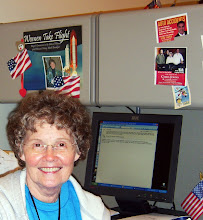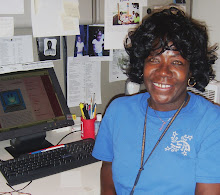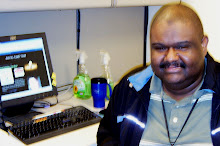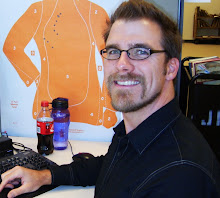
Digital Divide: The Three Stages
Summary:
The economic divide is a non-issue, but the usability and empowerment divides alienate huge population groups who miss out on the Internet's potential.
The "digital divide" refers to the fact that certain parts of the population have substantially better opportunities to benefit from the new economy than other parts of the population. Most commentators view this in purely economic terms. However, two other types of divide will have much greater impact in the years to come.
Stage 1: Economic Divide
In its simplest form, the digital divide is manifested in the fact that some people can't afford to buy a computer. Although politicians always talk about this point, it's growing more irrelevant with each passing day -- at least in the industrialized world. We should recognize that for truly poor developing countries, computers will remain out of the average citizen's reach for 20 years or more.
In areas like North America, Europe, Australia, and Asia's advanced countries, computer cost is no longer an issue. Dell's cheapest computer costs $379 (with a monitor) and is about 500 times as powerful as the Macintosh Plus I used to write my Ph.D. thesis. While it's true that a few people can't even afford $379, in another five years, computers will be one-fourth their current price. Would that all social problems would go away if we simply waited five years.
Stage 2: Usability Divide
Far worse than the economic divide is the fact that technology remains so complicated that many people couldn't use a computer even if they got one for free. Many others can use computers, but don't achieve the modern world's full benefits because most of the available services are too difficult for them to understand.
Almost 40% of the population has lower literacy skills, and yet few websites follow the guidelines for writing for low-literacy users. Even government sites that target poorer citizens are usually written at a level that requires a university degree to comprehend. The British government has done some good work on simplifying much of its direct.gov.uk site information, but even it requires at least a high school education to easily read.
Lower literacy is the Web's biggest accessibility problem, but nobody cares about this massive user group.
Senior citizens face the second-biggest accessibility problem, but again there is little interest in the guidelines for making websites easier for older users. Companies don't even have the excuse that it doesn't pay to cater to this audience, because retirees are rich these days. Even though seniors are the main remaining source of growth in Internet use, companies are still endlessly fascinated by young users and ignore older, richer users who would be much more loyal customers -- if only someone bothered to sell to them.
Whereas the economic divide is closing rapidly, I see little progress on the usability divide. Usability is improving for higher-end users. For this group, websites get easier every year, generating vast profits for site owners. Because they now follow more e-commerce user experience guidelines, companies that sell online typically have conversion rates of around 2%, which is twice the conversion rate of the bubble years. That's all great news for high-end users, but the less-skilled 40% of users have seen little in the way of usability improvement. We know how to help these users -- we're simply not doing it.
Stage 3: Empowerment Divide
We have the knowledge needed to close the usability divide, and I remain hopeful that we'll get the job done. The empowerment divide, however, is the hard one: even if computers and the Internet were extraordinarily easy to use, not everybody would make full use of the opportunities that such technology affords.
Participation inequality is one exponent of the empowerment divide that has held constant throughout all the years of Internet growth: in social networks and community systems, about 90% of users don't contribute, 9% contribute sporadically, and a tiny minority of 1% accounts for most contributions.
In researching how people use search engines for my seminar on fundamental guidelines for Web usability, we've found that many users don't know how to use search to truly master the Web. People don't understand advanced search features, they rarely employ query reformulation, and many uncritically select the first search results. Also, many users don't understand how search engines prioritize their listings, and some users don't even know that the euphemistic label "sponsored links" refers to paid advertisements. (For more info, see Consumer Reports' study of what users know about search ads.)
Because they lack the initiative and skill to take matters into their own hands, some users remain at the mercy of other people's decisions. For example, people sometimes accept the default home page chosen by their computer vendor or ISP rather than select one that's better suited to their needs. Again, this means that the user's attention can be sold off like a sheep to slaughter, as indicated by deals where search engines pay computer vendors millions of dollars to be the default setting on shipping PCs.
Similarly, some users limit themselves to "free" Web applications that display ads. What such users don't realize is that better applications (more appropriate, powerful, and liberating ones) are available at a cost that's far less than the value of the time they waste trying not to look at the ads.
Prospects for Bridge Building
The Internet can be an empowering tool that lets people find good deals, manage vendors, and control their finances and investments. But it can just as easily be an alienating environment where people are cheated. Members of the Internet elite don't realize the extent to which less-skilled users are left out of many of the advancements they cheer and enjoy.
Ultimately, I'm extremely optimistic about the economic divide, which is vanishing rapidly in industrialized countries. The usability divide will take longer to close, but at least we know how to handle it -- it's simply a matter of deciding to do so. I'm very pessimistic about the empowerment divide, however, which I expect will only grow more severe in the future.


















+002.jpg)